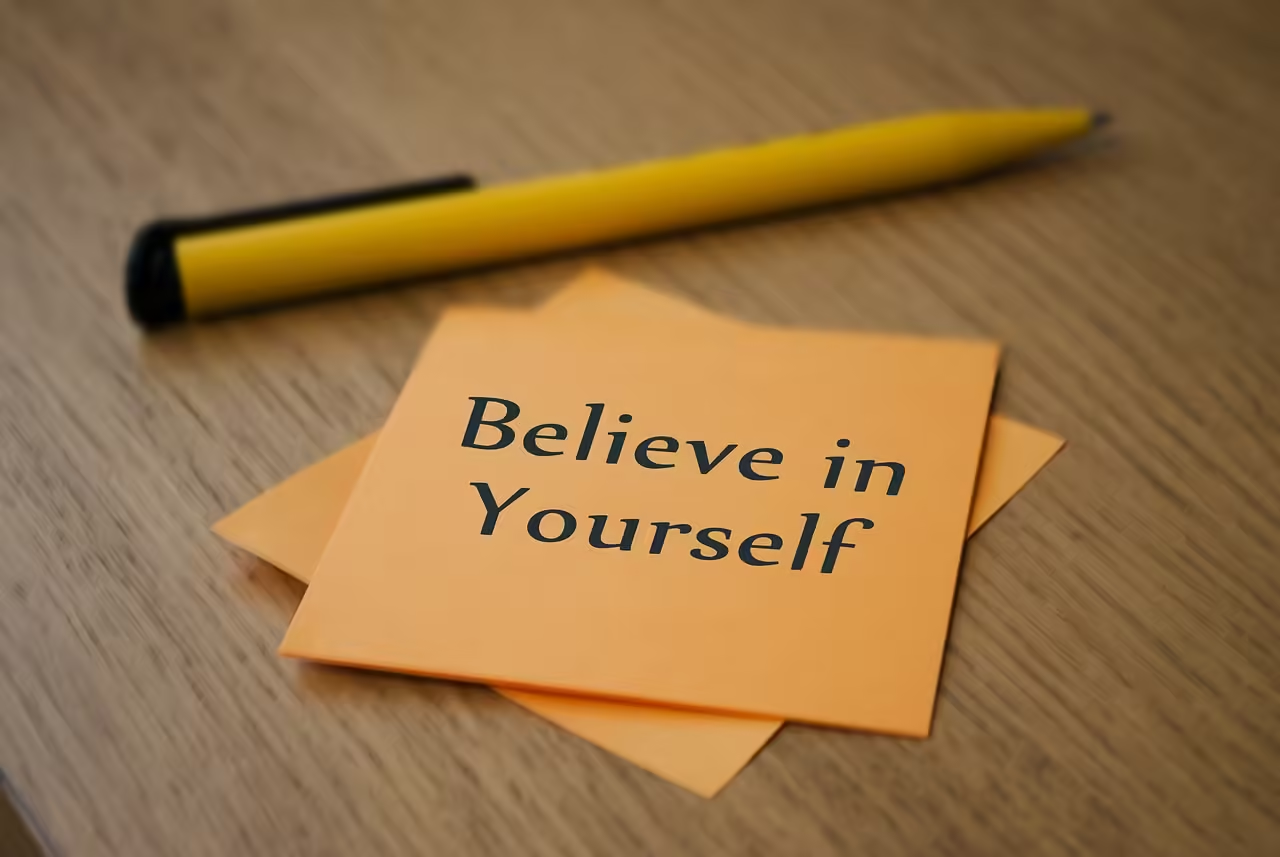Introduction
In a world where distractions and external pressures are omnipresent, understanding yourself has never been more critical. Self-awareness and self-understanding involve a deep exploration of your emotions, values, desires, and behaviors, which provide a foundation for growth in both personal and professional spheres.
Today, many people find themselves overwhelmed by societal expectations, social media, and cultural norms. They pursue careers, relationships, or lifestyles that are not aligned with their true selves, which leads to dissatisfaction and a sense of disconnect. Understanding yourself is the antidote to this—offering clarity, purpose, and alignment with your true nature.

Self-understanding also helps people across all age groups—from teenagers trying to navigate identity in a social-media-dominated world to adults seeking purpose in their careers. This journey of introspection and reflection helps individuals overcome external pressures, such as the need for approval from peers or family and instead fosters authenticity. Recent studies suggest that self-awareness is linked to better emotional regulation, stress management, and life satisfactionBetterUpThe Mending Muse.
Furthermore, the modern world offers unique challenges that make self-awareness more essential than ever. The constant comparison on social media platforms often leaves people feeling inadequate or disconnected from their authentic selves. In this landscape, gaining self-understanding isn’t just important—it is crucial for mental health and long-term happinessBelieve In MindThe Mending Muse.
Real-Life Example: Consider John, who spent years in a lucrative finance career, only to feel a lingering dissatisfaction. After engaging in deep self-reflection, he realized his true passion was in the arts. This newfound awareness empowered him to make a career switch, and as a result, he found fulfillment and joy in his daily life. John’s story is a powerful reminder of how crucial it is to understand yourself and live in alignment with your authentic desiresThe Mending Muse.
What Does it Mean to Understand Yourself?
Self-Awareness vs. Self-Knowledge
The concepts of self-awareness and self-knowledge are often used interchangeably, but they represent different aspects of personal understanding. Self-awareness refers to being consciously aware of your present emotions, thoughts, and behaviors. It allows you to recognize how you’re feeling and why you’re acting in certain ways. Self-awareness is more situational and often fleeting. For example, during a disagreement, becoming aware that you’re feeling defensive is an act of self-awareness.
Self-knowledge, on the other hand, goes much deeper. It involves a cumulative understanding of your personality traits, values, life goals, and how these elements interact over time. Self-knowledge requires reflection on your past experiences, present actions, and future aspirationsLiz Theyers. Think of self-awareness as a snapshot, while self-knowledge is a full biography that unfolds over time. It includes understanding why you hold certain values, how your past shaped you, and where your strengths and weaknesses lie.
Components of Self-Understanding
To truly understand yourself, you must delve into several key components that make up who you are. Each element contributes to your overall personality and influences your behavior and decisions:
- Values: Your core principles guide every decision you make. Values are what you consider to be inherently important in life—such as honesty, loyalty, creativity, or financial security. When you align your actions with your values, you’re more likely to experience fulfillment. For instance, if you value honesty but work in an environment that encourages dishonesty, you’re likely to feel conflicted and dissatisfiedBetterUp.
Temperament: This refers to your natural disposition—whether you’re introverted or extroverted, whether you prefer structured environments or flexibility, and how you handle stress. Temperament influences how you interact with others and navigate social settings. For example, an introvert might feel drained after prolonged socializing, while an extrovert may thrive on group interactionsBelieve In Mind.
- Interests: Your passions and hobbies are also part of self-understanding. These are the things you do that bring joy without external incentives. Exploring and nurturing your interests can lead to a more fulfilling career or life pathBetterUp.
- Strengths and Weaknesses: Identifying both your strengths and weaknesses provides clarity on what areas to leverage and where to improve. Knowing your strengths helps you build confidence, while acknowledging your weaknesses allows you to either improve them or minimize their impact on your lifeLiz Theyers.
Each of these components forms a comprehensive understanding of your personality. Regular reflection on these areas ensures that you’re living in harmony with your true self.
Why is it Important to Understand Yourself?

Improved Decision Making
Understanding yourself significantly enhances your decision-making abilities. When you know your values, it becomes easier to make choices that align with your authentic self. For instance, someone who values creativity might feel more fulfilled pursuing a career in the arts rather than in a corporate setting. Likewise, knowing your temperament and strengths enables you to make career and life decisions that resonate with your natural tendenciesBetterUp.
Let’s take a real-world example: Sarah, an ambitious lawyer, spent years working in high-stress corporate environments before realizing that her true passion lay in helping underprivileged communities. By aligning her career with her values of social justice, she now finds more meaning in her work and feels a greater sense of purpose. This self-awareness helped her navigate a major life decision with confidenceBelieve In Mind.
Increased Self-Worth and Confidence
When you understand yourself, you’re less likely to seek validation from others because you trust your internal compass. People with a strong sense of self-worth are more confident in their abilities and decisions, allowing them to take risks and pursue opportunities they might otherwise shy away fromThe Mending Muse.
Studies show that self-knowledge plays a critical role in improving mental health. When individuals embrace their strengths and weaknesses, they develop a more resilient mindset, one that is less influenced by external criticism or pressureBetterUp.
Reduced Stress and Anxiety
Another significant benefit of self-understanding is the reduction of stress and anxiety. People who understand their triggers, stress points, and emotional patterns can more effectively manage their responses to life’s challenges. They are also better equipped to avoid situations that might cause undue stressThe Mending Muse. By knowing what environments are most conducive to your well-being, you can set boundaries and prioritize self-care, leading to better mental health outcomes.
For example, someone who knows they get easily overwhelmed in chaotic environments might prefer remote work, where they can control their surroundings and reduce their anxiety. This understanding provides them with the tools to make choices that protect their mental healthBetterUp.
Breaking Negative Patterns
Self-understanding helps individuals break free from repetitive negative patterns. When you regularly reflect on your actions and behaviors, you’re more likely to identify self-sabotaging tendencies and work towards positive change. For example, if you notice a pattern of withdrawing during conflict, understanding this behavior can help you develop healthier communication strategiesBelieve In Mind. Mindfulness and introspection play key roles in identifying these patterns and offering a roadmap for changeBetterUpThe Mending Muse.
Improved Relationships
The better you know yourself, the better you can communicate your needs and boundaries in relationships. Understanding your emotional triggers allows for clearer communication, which reduces misunderstandings and strengthens bonds with othersThe Mending MuseBelieve In Mind.
People with high levels of self-awareness are often more empathetic, as they can understand and relate to the emotional needs of others. This empathy leads to healthier, more meaningful relationshipsBetterUp.
The next sections will further elaborate on Challenges to Developing Self-Knowledge, Steps to Enhance Self-Understanding, and more insights on how self-knowledge impacts well-being.
Challenges to Developing Self-Knowledge
While self-understanding offers numerous benefits, it is not without its challenges. Developing self-knowledge requires time, effort, and, often, confronting uncomfortable truths. Here are some common barriers people face on this journey:
1. Suppression and Repression
One of the biggest challenges to self-understanding is emotional repression. Many people avoid self-reflection because they fear the truths they might uncover. Emotional suppression involves consciously holding back feelings, while repression happens when people unconsciously block memories or emotions that are too painful to deal with.
Psychologists suggest that unresolved trauma or unacknowledged feelings can surface in unexpected ways, influencing decisions and relationships without conscious awareness. For instance, someone who grew up in a household where emotions were dismissed may have difficulty processing their feelings as an adultBetterUp.
Moreover, societal stigmas around certain emotions, such as vulnerability or anger, can lead people to repress those feelings, preventing true self-understanding. Over time, this leads to emotional disconnection and the inability to confront deeper issues.
2. External Influence
Another significant challenge is the pressure from social expectations and external influences. Cultural norms, family expectations, and societal standards often dictate how individuals should act, what career paths they should follow, and even what personal relationships they should pursueThe Mending Muse. This external pressure can create a conflict between who someone truly is and who they feel they need to be to fit in or be accepted.
For example, a person might feel pressured to pursue a high-paying career in finance because of family expectations, even though their true passion lies in creative writing. Over time, this dissonance can lead to dissatisfaction, burnout, and a lack of fulfillment.
To combat this, it’s essential to develop a strong sense of self-awareness to resist external influences and make decisions that align with your valuesLiz Theyers.
Steps to Enhance Self-Understanding
While the challenges to self-understanding are significant, there are various strategies that individuals can adopt to develop deeper self-awareness. These steps help people peel back layers of societal conditioning and understand their true selves.
1. Introspection
Introspection is the process of turning inward and reflecting on your thoughts, feelings, and motivations. It is one of the most effective ways to develop self-knowledge because it allows you to uncover the “why” behind your actions. Engaging in mindfulness practices, such as meditation, can help cultivate introspection.
Many experts recommend daily mindfulness exercises to become more attuned to your inner worldThe Mending Muse. When practiced consistently, introspection helps you identify patterns in your behavior, making it easier to understand what drives you.
Practical Tip: Spend 10–15 minutes each day practicing mindfulness or reflecting on your actions. Ask yourself, “Why did I react this way?” or “What emotion am I avoiding right now?” Over time, these practices will build your emotional intelligence.
2. Behavior Tracking
Behavior tracking involves observing and recording your actions over time. It helps to identify areas where your actions might not align with your self-perception. For instance, you may consider yourself someone who values balance, but if you notice patterns of overworking, it may indicate a deeper conflict between your perceived values and actionsBetterUp.
Many people find that they are unaware of the habits they have developed over time. Using habit-tracking tools or apps can provide valuable insights into behavioral patterns that either serve or hinder personal growth.
Practical Tip: Use a habit-tracking journal or app to monitor daily habits, such as how you spend your time or how you respond to stress. This will help you reflect on whether your actions align with your long-term goals.
3. Journaling
Writing down your thoughts is one of the most effective ways to gain clarity and self-awareness. Journaling allows you to express your emotions, recognize patterns in your thinking, and gain insight into unresolved issues. Regular journaling also creates a safe space for you to reflect on your feelings without judgmentLiz Theyers.
There are various forms of journaling, each serving different purposes:
- Gratitude journaling helps focus on the positive aspects of life.
- Stream-of-consciousness journaling encourages free writing to uncover deeper thoughts.
- Goal-oriented journaling allows for reflection on specific ambitions and how to achieve them.
Practical Tip: Set aside 10 minutes a day to journal without restrictions. You can write about your emotions, what you learned during the day, or a challenge you’re facing. Over time, this process will help you notice recurring patterns and deepen your self-awareness.
4. Seeking Feedback
Receiving feedback from trusted individuals can provide you with a perspective that you might miss during self-reflection. Close friends, mentors, or family members can offer insights into your behaviors and traits that you may be blind to. This type of feedback serves as a mirror, showing you parts of yourself that are difficult to seeBelieve In Mind.
However, it’s important to choose the right people to seek feedback from—those who have your best interest at heart and can offer constructive, honest insights.
Practical Tip: Ask two or three people you trust to describe your strengths and areas where you could improve. Use their feedback as part of your self-discovery journey.
Also Read: 21 Essential Qualities of a Good Man: Traits That Build Lasting Relationships

How Self-Understanding Improves Overall Well-Being
The benefits of understanding yourself go far beyond making better decisions or improving relationships. Self-awareness fundamentally enhances your overall well-being by aligning your life with your true desires and helping you navigate life’s challenges with more grace and confidence.
1. Increased Happiness and Sense of Purpose
People who understand themselves are more likely to pursue goals and lifestyles that align with their values, leading to a greater sense of fulfillment. When you’re clear about what you truly want, you naturally make choices that lead to happinessBetterUp. For example, someone who values freedom may prioritize careers that offer flexibility, resulting in a more satisfying work-life balance.
2. Living Authentically
Living authentically means embracing who you truly are, rather than conforming to external expectations. People who live authentically experience less stress and are more resilient because they are not constantly battling to meet societal norms that don’t align with their core selvesBelieve In Mind.
Authenticity also fosters better connections with others. When you are comfortable with who you are, you’re more likely to attract people who appreciate and support your authentic self, leading to healthier, more fulfilling relationshipsThe Mending Muse.
Living Authentically and Its Impact on Life Satisfaction
Living authentically means embracing your true self without pretending to be someone you’re not, regardless of societal pressures. It involves making decisions that align with your core values, desires, and beliefs, rather than conforming to what others expect of you. When you live in this manner, it fosters a sense of inner peace and satisfaction because your actions reflect your true identity.
People who live authentically experience higher levels of life satisfaction. This sense of contentment comes from knowing that you are living a life in alignment with your values and desires. Research shows that authenticity is closely linked to psychological well-being, as people who live authentically experience fewer internal conflicts and less stressBetterUpBelieve In Mind.
Moreover, living authentically has a positive ripple effect on relationships. When you are true to yourself, you naturally attract people who appreciate you for who you are, which deepens the quality of your interactions. You are also more likely to set clear boundaries, ensuring that your needs are respectedBelieve In Mind.
Practical Examples of Living Authentically
- Career Choice: Someone who values creativity and freedom may pursue a career as a freelance designer rather than working a rigid 9-to-5 job. By aligning their work with their passions, they feel more fulfilled and energized each day.
- Relationships: A person who values open communication will seek partners or friends who also prioritize honesty and transparency, leading to stronger, more meaningful connections.
In short, living authentically creates a foundation for a happier, more fulfilling life.
Breaking Negative Patterns: How Self-Understanding Leads to Personal Growth
One of the most valuable aspects of self-understanding is the ability to identify and break negative behavioral patterns. Often, people find themselves repeating unhealthy habits or behaviors because they lack the awareness needed to make a change. For example, someone might consistently procrastinate, avoid difficult conversations, or self-sabotage their own success without realizing why.
Through the process of self-reflection and introspection, individuals can identify the root causes of these behaviors. This might involve understanding how past experiences or unresolved emotions influence current actions. Once these patterns are identified, it becomes easier to make conscious changes and create new, healthier habitsBelieve In MindBetterUp.
Steps to Break Negative Patterns
- Identify Triggers: Start by recognizing situations or emotions that lead to the behavior. For example, do you tend to procrastinate when feeling overwhelmed or anxious?
- Analyze the Pattern: Reflect on how often the behavior occurs and what the long-term consequences are. Acknowledge how this pattern holds you back from achieving your goals.
- Set New Intentions: Once you understand the behavior, set clear, actionable steps to change it. If procrastination is an issue, break down tasks into smaller, manageable steps to avoid feeling overwhelmed
- Accountability: Share your intentions with a trusted friend or mentor who can offer support and keep you accountable as you work on making changes
Breaking negative patterns is a key part of personal growth and can lead to significant improvements in both your personal and professional life.
Also Read: Love What You Have, Before Life Teaches You To Lov – Tymoff
Self-Knowledge and Emotional Intelligence: The Power of Understanding Emotions
Emotional intelligence (EI) is the ability to recognize, understand, and manage your own emotions, as well as those of others. It is a crucial skill for self-understanding because emotions often drive behaviors and decision-making. When you develop a deeper understanding of your emotional triggers, you’re better equipped to manage them effectivelyThe Mending Muse.
For example, if you know that you become anxious in high-pressure situations, you can develop coping mechanisms to stay calm and focused. This could involve practicing mindfulness, deep breathing, or reframing negative thoughts into more constructive onesBetterUp.
Components of Emotional Intelligence
- Self-Awareness: Recognizing your own emotions and understanding how they affect your thoughts and actions.
- Self-Regulation: The ability to manage your emotions, especially in stressful situations. This might include techniques such as emotional journaling or cognitive reframing.
- Empathy: Understanding and sharing the feelings of others, which strengthens relationships and improves communication
Developing emotional intelligence is not only beneficial for personal well-being, but it also improves professional success. Studies show that individuals with high emotional intelligence are better leaders, as they are able to empathize with others and manage their emotions in high-pressure situationsBelieve In MindThe Mending Muse.
Increased Life Satisfaction Through Purpose-Driven Living
Finding purpose in life is a key outcome of deep self-understanding. Purpose-driven living involves aligning your daily actions and decisions with a greater sense of meaning and long-term goals. People with a strong sense of purpose are more resilient, as they are motivated by something bigger than themselvesLiz Theyers.
When you know your values and desires, you’re more likely to pursue careers, relationships, and hobbies that provide a sense of fulfillment. For example, someone who values helping others might find purpose in teaching, mentoring, or volunteering. By doing work that aligns with their values, they experience a greater sense of accomplishment and happiness.
How to Discover Your Life Purpose
- Reflect on Meaningful Experiences: Think about past experiences that gave you a sense of fulfillment. What activities made you feel most alive and engaged?
- Identify Your Core Values: What principles guide your decisions? Whether it’s creativity, compassion, or independence, identifying these values helps you find work and activities that align with them
- Set Long-Term Goals: Establish goals that align with your values and give you a sense of purpose. These might be personal, such as developing deeper relationships, or professional, such as building a career that positively impacts others.
Living with purpose enhances overall well-being, providing a roadmap for a more meaningful and fulfilling lifeBelieve In Mind.
Conclusion
To conclude, the journey of self-understanding is a lifelong process that offers countless benefits, from enhanced decision-making to improved emotional intelligence and deeper relationships. By embracing your authentic self, breaking negative patterns, and living with purpose, you can achieve a more fulfilling and balanced life.
Remember that self-awareness is not a one-time achievement; it requires continuous reflection and adjustment. As you grow and change, so too will your understanding of yourself. The key is to remain committed to this process, knowing that it will lead to a life that is aligned with your true values and desires.
Share this article with others and subscribe to our website for more insightful content designed to guide you on your journey of self-discovery and personal growth.

Greetings! I am the voice behind the thoughts presented on Synched Harmony. As an ordinary individual, I strive to live a life dedicated to achieving inner peace and serenity by cultivating harmony within and making difficult aspects of life work together in sync during tough phases of life. Life becomes much easier if we open ourselves to small changes and respect each other’s personal boundaries, creating space for shared happiness.

